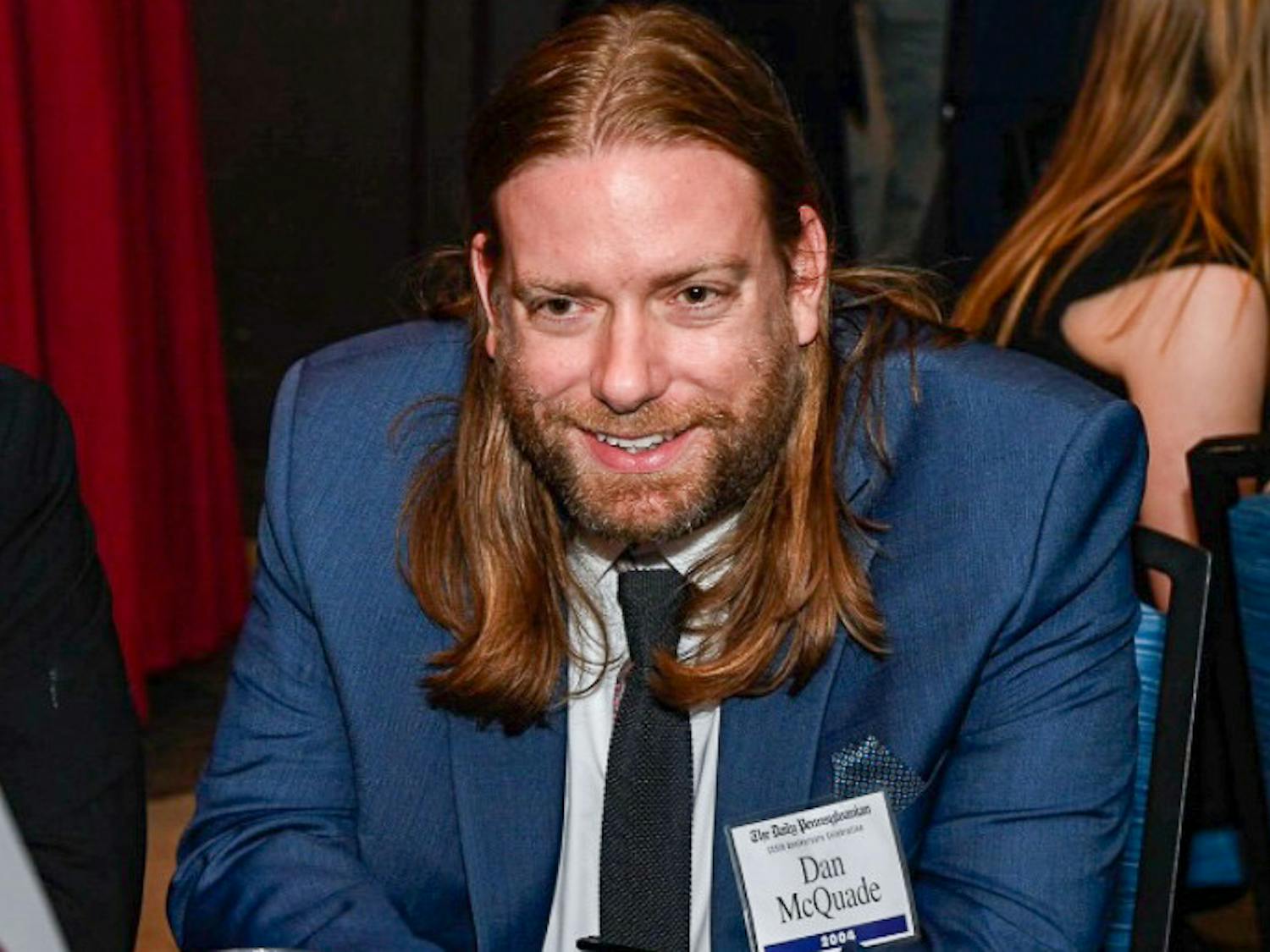When a review of Scott McCartney's recently published book ENIAC: The Triumph and Tragedies of the World's First Computer was posted on the Internet, it revived a decades-old argument over who invented the first all-electronic digital computer. While some Philadelphia-area experts attribute the discovery to Penn, other people have made similar claims from as close as Boston to as far away as Germany and England. But according to McCartney, a staff writer for The Wall Street Journal, the ENIAC computer was indeed created by two Penn alumni during their academic careers at Penn's Moore School of Electrical Engineering. McCartney spoke to approximately 20 members of the University community at the University Bookstore on Monday. He signed copies of his book and discussed his investigative reporting of the ENIAC controversy. McCartney explained that although he had been covering the computer industry for The Wall Street Journal, he one day realized that he didn't know who invented the computer. "The inventors of the most important invention of the century remained obscure," McCartney said. In his quest to find the inventors, McCartney discovered John Mauchly and Presper Eckert, two Engineering students who met at the Moore School in 1941. Eckert and Mauchly were funded by the U.S. Army in 1943 to create a mechanism that would quickly compute the course of missiles during World War II. Their solution was ENIAC. McCartney searched through old records, diaries and video tapes stored in the Library of Congress. He found additional books that belonged to Mauchly in the rare book department of Van Pelt Library. ENIAC, unveiled on February 14, 1946, was accompanied by much University fanfare. It weighed 30 tons and occupied 1,800 square feet, McCartney said. The event, which should have been a momentous day for both the inventors and the University, was overshadowed by the patent fight surrounding who should get credit for actually inventing the first computer, McCartney said. "The three-century quest for computing machines melted into a three-decade quest to gain credit for it," he said. The Army gave Mauchly and Eckert permission to apply for patents for the computer technology, but the attempt was prohibited by the University. McCartney said the Moore School gave the two an ultimatum: If they wanted to remain at the University, they would have to give up patent considerations. According to McCartney, the University did not feel that a profit should be made on an invention that was created at an institution of higher learning and expressly intended for public use. Mauchly and Eckert resigned just five weeks after ENIAC was unveiled. Due to the inventors' failure to get a patent on time, other institutions also began producing computers, which led to the patent debate, McCartney said. Mauchly and Eckert went on to found the first computer company, but they could not compete when IBM eventually came onto the market. Their company was later bought out by Remmington-Rand, which is now called Unisys. "They were too far ahead of the game their whole lives," said McCartney. Indeed, McCartney claimed that when Eckert heard about the formation of Intel Corp., he predicted that computers would eventually be cheaper and fit on a desktop. And Mauchly supposedly recognized that computers could eventually be used to monitor weather around the world. Mauchly also worked on creating an Internet and electronic money transfers even before the technology was in place. Others who felt connected to the story of ENIAC attended Monday's book signing. Betty Davis, a graduate of the Class of 1942, retold a story of a conversation that she had with a friend while in college. A friend who knew Eckert had told her that she would eventually be able to use computers to keep track of sales in her department stores. "After all these years, as I saw his predictions come through, I've been waiting for this book and I couldn't stay away," she said. "What would have happened if Penn had played the hand dealt them differently?" McCartney asked his audience. "Philadelphia could have become a center of computing and technology." Presper and Eckert were both eventually given patents on the computer, but both died before ENIAC's 50th birthday celebration in 1996.
The Daily Pennsylvanian is an independent, student-run newspaper. Please consider making a donation to support the coverage that shapes the University. Your generosity ensures a future of strong journalism at Penn.
Donate







